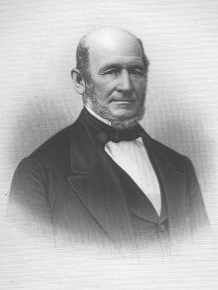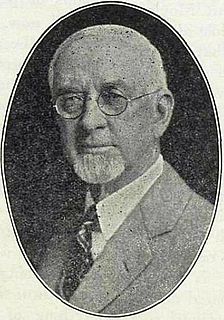A Quote by David Hume
In all determinations of morality, this circumstance of public utility is ever principally in view; and wherever disputes arise, either in philosophy or common life, concerning the bounds of duty, the questions cannot, by any means, be decided with greater certainty, than by ascertaining, on any side, the true interests of mankind. If any false opinion, embraced from appearances, has been found to prevail; as soon as farther experience and sounder reasoning have given us juster notions of human affairs, we retract our first sentiment, and adjust anew the boundaries of moral good and evil.
Quote Topics
Adjust
Affairs
Anew
Any
Appearances
Arise
Been
Boundaries
Bounds
Cannot
Certainty
Circumstance
Common
Common Life
Concerning
Decided
Disputes
Duty
Either
Embraced
Ever
Evil
Experience
False
Farther
First
Found
Given
Good
Good And Evil
Greater
Human
Interests
Life
Mankind
Means
Moral
Morality
Notions
Opinion
Our
Philosophy
Prevail
Public
Questions
Reasoning
Retract
Sentiment
Side
Soon
Sounder
Than
True
Us
Utility
View
Wherever
Related Quotes
THERE is no method of reasoning more common, and yet none more blameable, than, in philosophical disputes, to endeavour the refutation of any hypothesis, by a pretence of its dangerous consequences to religion and morality. When any opinion leads to absurdities, it is certainly false; but it is not certain that an opinion is false, because it is of dangerous consequence. Such topics, therefore, ought entirely to be forborne; as serving nothing to the discovery of truth, but only to make the person of an antagonist odious.
As Muslims, our interests are our values. In any society, be it in Western or Muslim-majority countries, our duty is that of critical loyalty: Staying loyal to our countries by always being critically engaged in the name of the principles of justice, equality and human brotherhood. We should be the ethical and moral voice wherever we are by saying that, even though we understand economic and geo-strategic interests, we cannot accept a violation of these principles by any society.
Lastly, our ancestors established their system of government on morality and religious sentiment. Moral habits, they believed, cannot safely be trusted on any other foundation than religious principle, nor any government be secure which is not supported by moral habits.... Whatever makes men good Christians, makes them good citizens.
If we take in our hand any volume; of divinity or school metaphysics, for instance; let us ask, Does it contain any abstract reasoning concerning quantity or number? No. Does it contain any experimental reasoning concerning matter of fact and existence? No. Commit it then to the flames: for it can contain nothing but sophistry and illusion.
Vision, in my view, is the cause of the greatest benefit to us, inasmuch as none of the accounts now given concerning the Universe would ever have been given if men had not seen the stars or the sun or the heavens. But as it is, the vision of day and night and of months and circling years has created the art of number and has given us not only the notion of Time but also means of research into the nature of the Universe. From these we have procured Philosophy in all its range, than which no greater boon ever has come or will come, by divine bestowal, unto the race of mortals.
You cannot be naïve about evil. You cannot be naïve to the reality that there are human beings and human situations which have totally identified with the dark side of reality. They are malicious. Realism teaches you to put up appropriate boundaries so that people can't do any more evil than possible. But that doesn't mean you do evil back to them.
The revelations which Joseph Smith has given to this people were given to him by Jesus Christ, the Savior of the world; and this people cannot be blessed if they lightly esteem any of them...For this purpose did He give the revelation on plurality of wives, as sacred a revelation as was ever given to any people, and fraught with greater blessings to us than we can possibly conceive of, if we do not abuse our privileges and commit sin. This doctrine is a holy and pure principle, in which the power of God for the regeneration of mankind is made manifest.
I believe that it is my duty and your duty to teach our children concerning this great God-inspired Constitution, this great law of liberty which he has given to this world, and which was never given before to any nation in any land. Never before has there been a representative government of this kind. Republics have been tried, hundreds of times, thousands of years ago, but never was there anything like this Government.
Let us become thoroughly sensible of the weakness, blindness, and narrow limits of human reason: Let us duly consider its uncertainty and endless contrarieties, even in subjects of common life and practice.... When these topics are displayed in their full light, as they are by some philosophers and almost all divines; who can retain such confidence in this frail faculty of reason as to pay any regard to its determinations in points so sublime, so abstruse, so remote from common life and experience?
There are respectable individuals, who from a just aversion to an accumulation of Public debt, are unwilling to concede to it any kind of utility, who can discern no good to alleviate the ill with which they suppose it pregnant; who cannot be persuaded that it ought in any sense to be viewed as an increase of capital lest it should be inferred, that the more debt the more capital, the greater the burthens the greater the blessings of the community.
It yet remains a problem to be solved in human affairs, whether any free government can be permanent, where the public worship of God, and the support of religion, constitute no part of the policy or duty of the state in any assignable shape. The future experience of Christendom, and chiefly of the American states, must settle this problem, as yet new in the history of the world, abundant, as it has been, in experiments in the theory of government.
This is the very heart of true morality--not to struggle, not to fight with any weapons, for one's self alone--but to struggle and to fight for the common interest, to wield the power of brain and good right arm if need be for one's family, for the ordered community of life, for the state, for moral principles, humanity, and the common good.
At last a vision has been vouchsafed to us of our life as a whole. We see the bad with the good.... With this vision we approach new affairs. Our duty is to cleanse, to reconsider, to restore, to correct the evil without impairing the good, to purify and humanize every process of our common life, without weakening or sentimentalizing it.





































